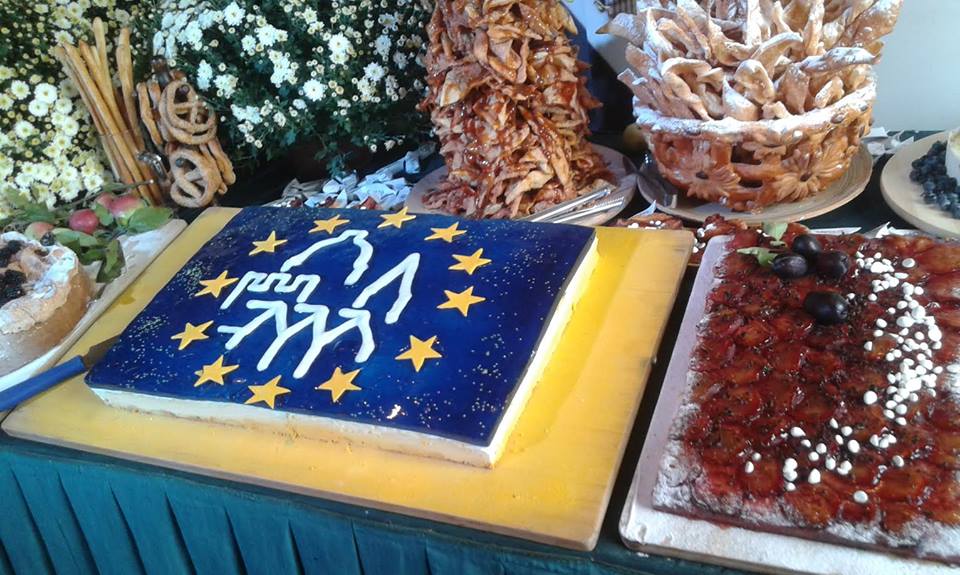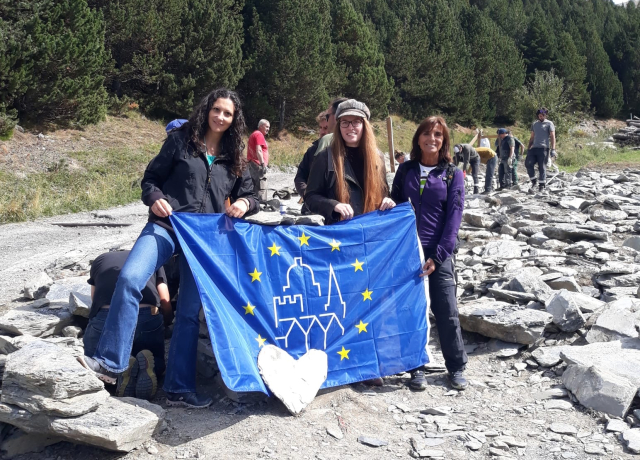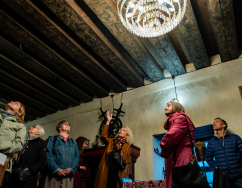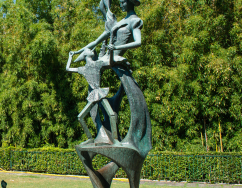European Heritage Days Article:
How to explore the full scope of the Routes, Networks and Connections theme
European Heritage Days Article:
How to explore the full scope of the Routes, Networks and Connections theme
Photo credits: El Forn de Canillo - Patrimoni Cultural d'Andorra
This year’s shared theme for European Heritage Days is Routes, Networks and Connections. Alongside exploring examples such as physical routes and international networks, thematic cultural connections, such as inventions, fairy tales and sports form another aspect of the theme. Organisers are encouraged to look for thematic connections which can tell us about common values, shared practices and collective histories, as well as how these have travelled and adapted over time and place. Many of these thematic examples also continue to play a role our lives today, providing opportunities to bring communities together and further strengthen the impact of this year’s theme.
Exploring thematic connections, the 2024 theme encompasses a broad spectrum of subjects. Here are some examples demonstrating the diversity and potential scope of topics which relate to this year’s Routes, Networks and Connections theme.
Innovations and Their Journey: Tracing the Evolution of Ideas and Inventions Across Europe
Under this year's theme, events could highlight the historical sharing of ideas and their impacts, including technological inventions and scientific discoveries. One resource for finding venues relating to this concept is The European Route of Industrial Heritage which includes over 2,000 locations and could be used for trails between places where significant innovations emerged or can be seen in action. Other topics could include medicine, philosophy and artistic breakthroughs amongst many more. The ways in which ideas have been disseminated could also be considered, for example by highlighting the role of trade routes such as rivers as hubs of innovation, or communication methods from the printing press to the internet. Another angle for events could be to look at the people behind inventions such as scholars, scientists and thinkers and explore how networks between European centres of learning contributed to the exchange of knowledge and ideas.
Bridging Cultures Through Sports: A Look at International Competitions and Traditional Games
From ancient history to the modern day, sports have connected people through friendly competition and shared identity. A focus on sporting themes could emphasise the networks created across regional or national fixtures and championships, or look at those which bring people together from more than one country such as the Olympics which also take place this year. Traditional games from different regions could be showcased, perhaps through hosting events across borders. Events could also trace the history and routes linking different types of sports with other countries to emphasise the potential for sports to create and strengthen international connections. Another connection which could be drawn through sports is their development over time, such as by comparing historic sports with their modern-day equivalent. These types of events could encourage engagement with a broad audience and provide opportunities for interactive activities to appeal to fans of all ages.
Culinary Heritage Unveiled: Exploring the Routes of Farming and Food Traditions in Europe

Routes, Networks and Connections themes can be found in many everyday interactions, and the food we eat is one of these. Both historic and modern trade links and the movement of people means that culinary heritage is often influenced by the agriculture and recipes from other places. Two of the Cultural Heritage Routes of Europe examine these ideas; the Historic Cafés Route tracks the history of coffee consumption across the continent, while the Transhumance Trails consider the cultural links forged by the routes of shepherds over thousands of years and the landscape of pastures and meadows they created. Other farming events could look at the theme of crop production and the cultural connections this has created, such as in this example from Belgium in 2022 which took place at two 19th century greenhouses and showed how their innovative heated design enabled fruits from across the world like pineapples to be grown in different climates. Events based on food such as cooking or tasting, perhaps by partnering with local restaurants, can also add a fun and experiential element to event programmes.
Enchanting Europe: Discovering the Shared Cultural Roots Through Fairy Tales and Legends
An interesting type of connection which can be explored through this year’s theme is the collective imagination, as seen through fairy tales and stories. Fairy tales are an important example as many stories have ancient roots and often echo others across Europe therefore providing a shared cultural context. A helpful resource on this topic can be found in the European Fairy Tale Route which includes locations and organisations from museums, associations and societies, to festivals and a theme park across eight countries. Whether working with these stories or others in your local area, look for ways to draw connections across a broad European perspective. Events themselves could include storytelling sessions such as those described in the Fairy Tale Ambassadors project from Armenia which was awarded as part of last year’s European Heritage Days Stories initiative. Other ideas for fairy tale themed events could include showcases of museum collections or tours around the locations which inspired enchanted stories and characters, while interactive games and experiences can be a great way to include family-friendly activities to event programmes.
Nature's Network: Uncovering the Ecological and Cultural Connections in Europe's Natural History
Alongside human connections, the 2024 theme also highlights natural heritage, such the ecological networks which have influenced Europe's landscapes and biodiversity. As well as exploring the countryside and natural geography, gardens could also take part to examine the cultural significance and connections made through horticulture. Inspiration for events could be taken from the European Route of Historic Gardens to showcase how plants from across the world were collected and cultivated and how shared botanical knowledge and aesthetics link parks, gardens and landscapes across Europe. Stargazing is another natural history topic which could demonstrate connections between people through mythological interpretations and stories, or which could feed into events exploring the development of routes through the importance of astronomy to navigation. Consider adding events which explain our connections to the natural world and exploring how these further link us through shared cultural heritage.
These are just a few of the many cultural themes which could be explored as part of Routes, Networks and Connections, but there are many more! For further event ideas, take a look through the 2024 brochure for organisers to get thinking about the thematic connections which can be explored in your area.


